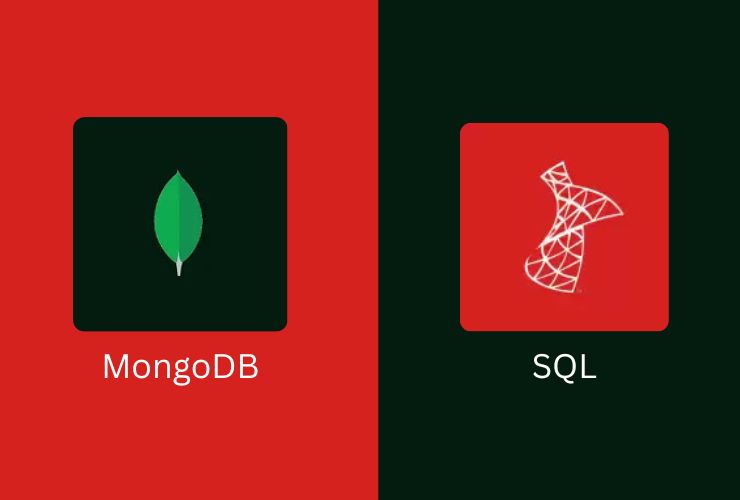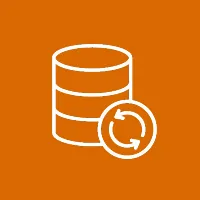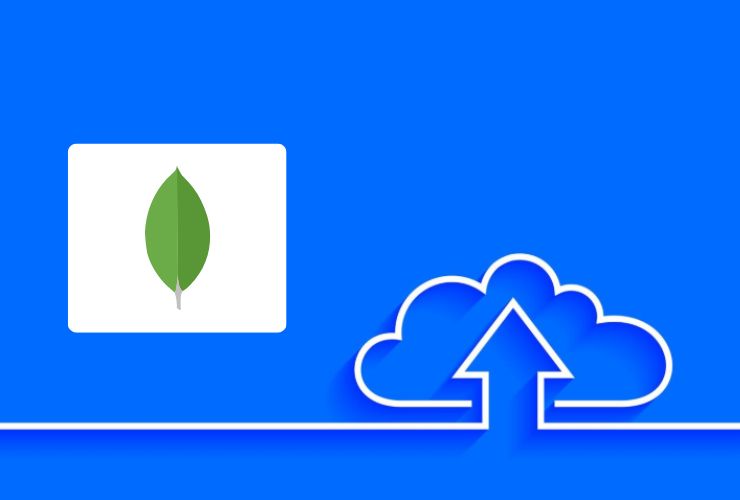Databases are the foundation of every application in today’s world, so choosing the right database is imperative for performance, scalability, and data management. SQL databases are often thought of as a better fit for structured data storage, providing reliability and relational integrity for transactional applications. Leading NoSQL databases like MongoDB provide structure and flexibility in storing unstructured and semi-structured data, offer schemes for horizontal scalability, and allow for faster development cycles compared to SQL.
This guide will provide information on the comparative analysis of MongoDB vs SQL databases to assist businesses in addressing their options based on use cases, performance requirements, and growth intentions.
1. Overview of SQL Databases
SQL (Structured Query Language) databases are known as relational databases that store data in tables with rows and columns. Examples of SQL databases include MySQL, PostgreSQL, and Microsoft SQL Server.
Key Features:
- Storage in structured data with a predetermined schema
- ACID (Atomicity, Consistency, Isolation, Durability) compliance for reliability
- Ability to query data using SQL (Structured Query Language) for complex queries
- Relational modeling for integrity and strong data integrity
Typical Use Cases:
- Banking and financial systems which require strict data consistency
- Enterprise Resource Planning (ERP) systems
- Application requiring multiple tables transactions and complex joins
Pro Tip: SQL databases are well suited for applications where the relationships of the data are highly interrelated and inherently require integrity as a crucial element.
2. Understanding MongoDB
MongoDB is a NoSQL document database that stores data in JSON-like BSON documents. It is designed for flexibility, high performance, and horizontal scalability, making it ideal for dynamic applications.
Key Features:
- Schema-less design for unstructured or semi-structured data
- Horizontal scalability using sharding
- Built-in replication for high availability
- Flexible query language supporting nested documents and arrays
Use Cases:
- Real-time analytics applications
- Content management systems (CMS)
- Internet of Things (IoT) platforms
- Big data and cloud-native applications
Pro Tip: MongoDB is highly suitable for applications with rapidly changing data structures or massive datasets where traditional relational models are limiting.
3. Key Differences Between MongoDB and SQL Databases
| Feature | SQL Database | MongoDB |
|---|---|---|
| Data Model | Relational (tables, rows, columns) | Document-based (JSON/BSON) |
| Schema | Fixed schema, requires migration for changes | Dynamic schema, flexible for evolving data |
| Scalability | Vertical scaling (scale-up) | Horizontal scaling (scale-out) with sharding |
| Transactions | ACID compliance, multi-table transactions | Supports ACID transactions for multi-document in latest versions |
| Query Language | SQL | MongoDB Query Language (MQL) |
| Performance | Optimized for structured data and joins | Optimized for large volumes of unstructured data |
| Use Cases | ERP, banking, legacy apps | Big data, IoT, content management, real-time apps |
4. Benefits of SQL Databases
- Facilities strong data integrity and consistency, ensuring every transaction is accurate.
- Mature product ecosystem with many community support & tools.
- Is optimized to do complex queries, joins, and reporting.
- Strong security and compliance controls, which is important for some industries.
5. Benefits of MongoDB
- Flexible schema promotes rapid development and changing business conditions.
- The ability to horizontally scale is key for rapidly managing massive datasets.
- Ideal for unstructured or semi-structured data such as logs, social media posts, and IoT data.
- Favorable for project development cycles and nimble mindset for cloud-native apps.
Example: Many social media platforms use MongoDB to manage the millions of posts, comments and media that are created at one time.
6. Which Database Should I Use?
Use SQL if:
- Your application requires strong data consistency and relational modelling.
- Your application does complex queries and joins.
- Your data is structured and doesn’t change frequently.
Use MongoDB if:
- Your application has a large amount of unstructured or semi-structured data.
- You need to rapidly iterate and a flexible schema is important.
- Horizontal scalability is essential for future growth.
You want, or need real-time analytics capabilities or IoT capabilities.
Example: A fintech app with a strict one year rule for accounting transactions will benefit from SQL, or a social media app generating millions of posts practically after every human typing into their device may potentially gain value from MongoDB.
7. Real-World Applications and Use Cases
SQL Database Applications:
- Banking, insurance, and financial services
- Enterprise ERP, CRM, and Human Resources
- E-commerce systems requiring a structured approach to inventories and transactions
MongoDB Applications:
- Real-time analytics dashboards
- Internet of Things applications using millions of devices
- Content management systems / platforms requiring dynamic content
- Cloud-native applications utilizing an evolving data model
8. How Empirical Edge can help
At Empirical Edge we provide professional database development and management services to ensure that your SQL or MongoDB solution is configured for optimization, performance, scalability, and your unique business objectives:
- SQL database design, optimization, and migration
- MongoDB architecture, scaling, and deployment
- Data modeling, ETL, and performance tuning
- Cloud database migration and hybrid implementations
To learn more about our database development services and help you select and implement the best database solution for your particular business context.
9. Important Considerations for Decision Making
- Data Complexity: relational vs unstructured
- Scalability Requirements: vertical vs horizontal scalability
- Speed of Development: agile iterations and schema flexibility
- Operating Costs and Infrastructure: On-premise vs. Cloud
- Compliance & Security: Regulatory requirements & data sensitivity
Conclusion
Choosing between MongoDB and SQL databases depends on your application requirements, data structure, scalability needs, and performance goals. SQL databases excel in structured, transactional systems, while MongoDB provides flexibility, scalability, and speed for modern, data-intensive applications.
By analyzing your use cases and leveraging expert services like Empirical Edge, businesses can implement a robust database solution that drives performance, growth, and innovation, ensuring long-term success.
Need help choosing the right database for your business? Empirical Edge provides expert database design, optimization, migration, and cloud implementation services to build scalable and high-performance applications.
Frequently Asked Questions
SQL databases store structured data in tables with fixed schemas, while MongoDB is a NoSQL document database that stores data in flexible JSON-like documents.
SQL is ideal for applications requiring strong data consistency, relational modeling, and complex queries—such as banking, ERP, and transaction-heavy systems.
MongoDB supports horizontal scaling through sharding, allowing businesses to add servers easily and manage massive datasets efficiently.
MongoDB is optimized for handling large volumes of semi-structured or unstructured data and heavy write loads, making it suitable for IoT, real-time analytics, and content platforms.
SQL databases follow ACID principles, ensuring accurate transactions, strong integrity, and reliability—important for regulated industries.
Modern MongoDB versions support multi-document transactions, though SQL databases generally provide stronger support for complex, multi-table transactions.










